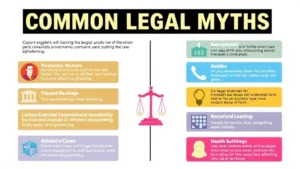
Family law is a complex area that affects many individuals at various stages of life, particularly for international couples or families in Taiwan. From divorce to child custody, understanding the nuances of Taiwan’s family law system is essential for anyone facing these issues. This article aims to shed light on the key aspects of family law in Taiwan, helping readers navigate their situations with confidence.
Understanding Taiwan’s Family Law System
Taiwan’s family law system has several unique characteristics that foreigners should be aware of:
Marriage and Divorce
- Taiwan requires marriage registration with local household authorities
- International marriages must comply with both Taiwan and the foreign spouse’s national laws
- Divorce can be processed through mutual agreement or legal proceedings
- Property division follows Taiwan’s distinctive community property system
- Foreign divorce decrees may need recognition through Taiwan courts
Child Custody and Support
- Taiwan courts prioritize the best interests of the child
- Joint custody arrangements are becoming more common
- International custody disputes fall under The Hague Convention regulations
- Child support calculations consider Taiwan’s living standards and costs
- Restrictions may apply to taking children out of Taiwan during disputes
Property and Inheritance
- Taiwan has specific regulations about marital property rights
- Inheritance laws differ significantly from Western systems
- Foreign wills may need special handling in Taiwan courts
- Property rights of non-resident spouses require careful consideration
Why You Need a Trusted Legal Advisor in Taiwan
Language and Cultural Barriers
- Family court proceedings are conducted in Mandarin Chinese
- Legal documents require accurate translation and interpretation
- Cultural differences can impact mediation and negotiation processes
- Local customs influence legal practices and judicial decisions
Complex Administrative Procedures
- Multiple government agencies may be involved
- Documentation requirements vary for international cases
- Timeframes and procedures differ from other jurisdictions
- Specific requirements for foreign document authentication
Protection of Rights
- Understanding your rights under Taiwan law
- Ensuring fair treatment in legal proceedings
- Protecting assets and interests across jurisdictions
- Maintaining access to children in international situations
Practical Considerations
- Navigating Taiwan’s household registration system
- Managing visa and residence permit implications
- Coordinating with foreign embassies and authorities
- Understanding tax implications of family law decisions
The Emotional Impact
Family law matters in Taiwan can be particularly challenging for international clients due to:
- Distance from support networks
- Cultural and language barriers
- Unfamiliarity with local legal systems
- Complex cross-border implications
Having a bilingual legal advisor who understands both international perspectives and Taiwan’s legal system can help:
- Reduce stress and anxiety
- Provide clear communication and guidance
- Ensure cultural sensitivity
- Facilitate effective negotiations
- Protect your rights and interests
How We Can Help
At Better Call Simon, we specialize in helping international clients navigate Taiwan’s family law system. Our services include:
- Bilingual legal consultation and representation
- Document preparation and translation
- Court appearance and advocacy
- Mediation and negotiation
- Cross-border case coordination
- Emergency legal assistance
Conclusion
Navigating family law in Taiwan requires not just legal knowledge but also cultural understanding and sensitivity to international dimensions. We encourage readers, especially those in international marriages or with cross-border family issues, to seek professional legal advice. Our team at Better Call Simon combines expertise in Taiwan’s legal system with international experience to provide comprehensive support throughout your family law journey.
Contact us for a consultation to discuss your specific situation and learn how we can help protect your rights and interests under Taiwan’s family law system.




